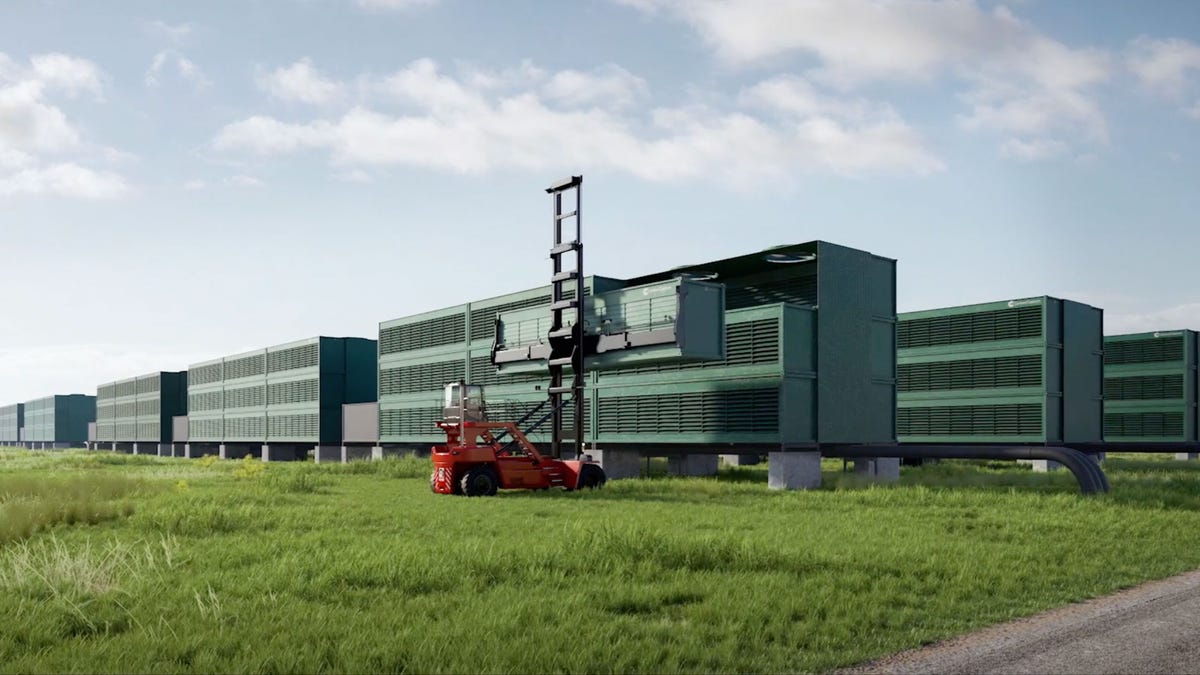Microsoft: We Need More Carbon Capture Businesses to Fight Climate Change
The Techonomy Climate conference spotlights technology to address the climate crisis.

Microsoft is trying to reverse its lifetime carbon emissions, the total amount of the greenhouse gas it's responsible for sending into the atmosphere since its founding in 1975. To get there, it needs more companies it can pay to capture carbon dioxide from the air.
That's the word from Lucas Joppa, Microsoft's chief environmental officer, speaking at the Techonomy Climate conference Tuesday. Carbon capture is expensive and can't operate at anything like the scale needed to pull significant amounts of carbon dioxide out of the air. Microsoft wants to buy carbon capture services in part to advance the technology and bring its costs down.
"The market can barely support Microsoft's demands. There's just not enough supply," Joppa said of carbon capture. "That's fine now, kind of, but it's not fine for 2030. It's not fine for 2050. The rest of corporate America needs to get into this game."
His call to action represents one facet of the tech industry's attempt to wrestle with climate change. That includes efforts to cut the industry's own climate footprint -- for example, Google's efforts to shift to renewable energy sources -- and to capitalize directly with businesses that profit from fixing the climate.
At stake is whether humans can fight the climate change we've caused and its dangers: extreme weather events like storms, more heat, more drought and plunging biodiversity.
Lucas Joppa, Microsoft's chief environmental officer, speaks at the Techonomy Climate conference.
Microsoft is applying its purchasing power to carbon capture. "We came along and said we want a million metric tons. That blew the lid off the market," Joppa said. "We bought 1.3 million metric tons in the first year. That was the vast majority of what the world had to offer."
Idealab Studio Chief Executive Bill Gross, another Techonomy speaker, helped create one startup working on the problem, CarbonCapture. Gross hopes it'll eventually pull carbon out of the air economically and at large scale to lower carbon dioxide to the levels it was decades ago.
"We have to go backward in time if we want to give the same Earth I inherited to my children and grandchildren," Gross said.
Several other companies touted their green tech at the show:
- Live Carbon hopes to make trees better at pulling carbon out of the air, using genetic engineering so poplars and other species can convert more carbon dioxide into wood with a given amount of sunlight. They also want to increase how long that carbon stays locked up by adding genes from plants that absorb metal like nickel and iron that slow down rotting.
- Zap Energy is trying to commercialize clean fusion energy that'll work at utility scale, said Chief of Staff AJ Kantor. Researchers have failed to commercialize fusion energy for decades, but interest is high for a technology that would offer steady, clean power with no radioactive waste or meltdown risk. Zap Energy is one of 25 startups that's pulled in $4 billion of VC funding, Kantor said.
- MicroByre wants to use new strains of bacteria to produce useful chemicals, like a precursor to the acrylic acid that's widely used in diapers and plastics. And unlike other bacteria manufacturing techniques, it feeds its bacteria organic waste, not sugar that must be refined. "My goal with this company is to literally turn poop into money," said CEO Sarah Richardson.
- GHGSat has begun launching satellites to pinpoint greenhouse gas emissions from sources like individual oil wells, landfills and coal mines. "The age of transparency, of seeing emissions anywhere around the world, is here now," said company President Stephane Germain.
- Energy Vault has begun testing technology to store energy by lifting 35-ton concrete blocks up a tower, said Gross, an investor. That's useful for turning intermittent power from solar panels and wind turbines into continuous power. The company plans on a gargantuan building 300 meters square and 100 meters tall that can store a gigawatt-hour of power.
"We need 1,000 shots on goal. We need everything," Gross said of the different strategies to tackle climate change. "There's no single solution that's going to solve everything."
Correction, March 31: This story initially misstated the amount of energy the Energy Vault's planned facility can store. The startup expects to store 1 gigawatt-hour of energy in the new facility.

